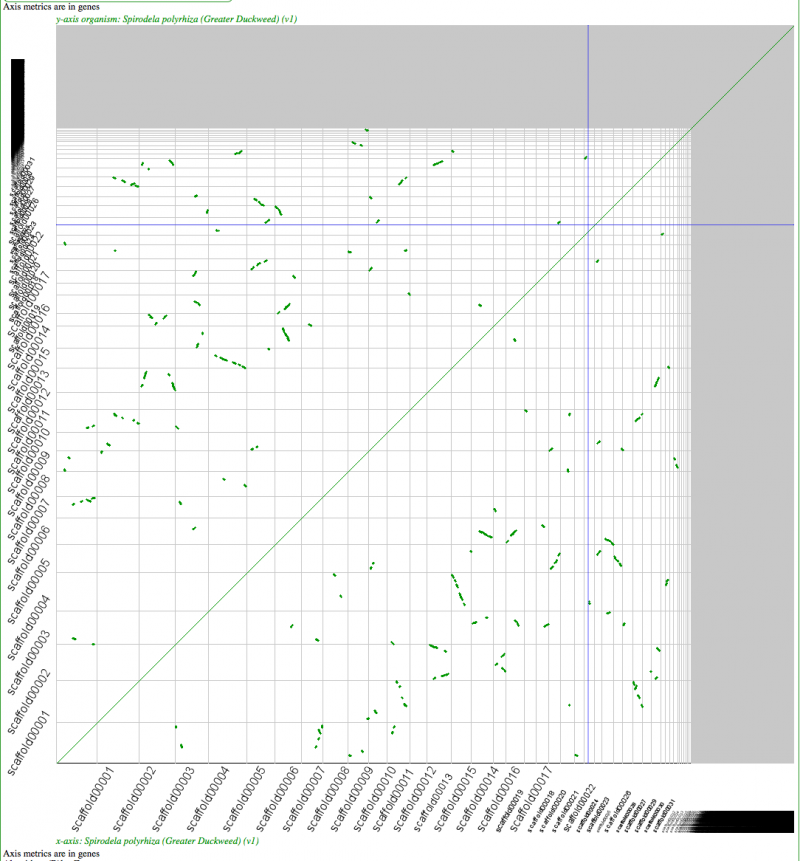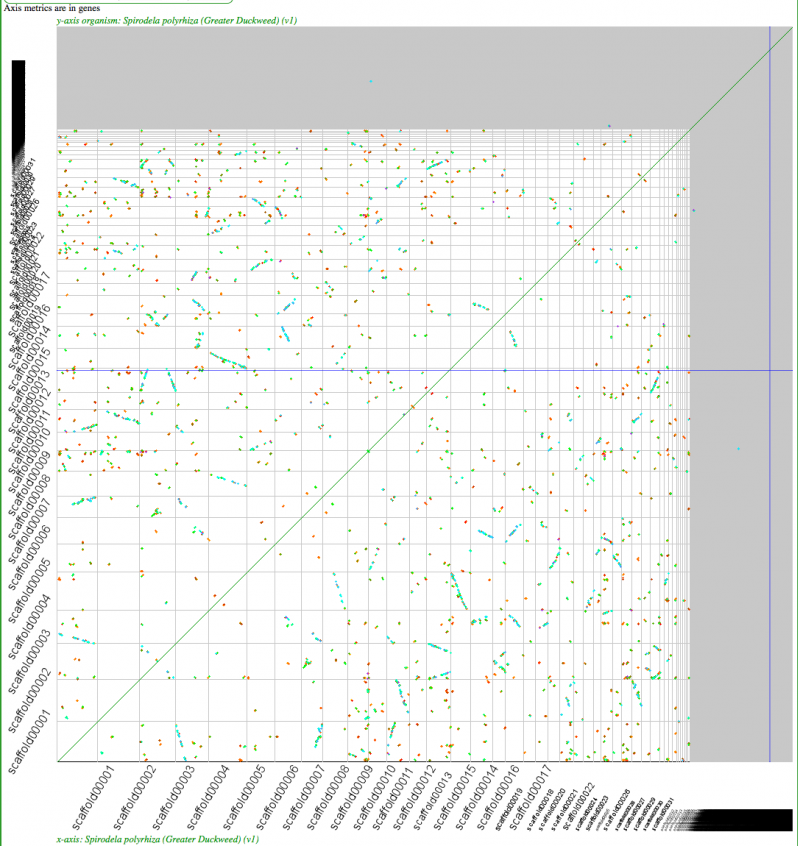Duckweed v. Duckweed: Difference between revisions
Jump to navigation
Jump to search
No edit summary |
No edit summary |
||
| Line 4: | Line 4: | ||
[[File:Screen Shot 2012-03-21 at 7.30.19 PM.png|thumb|800px|center|Syntenic dotplot of self-self with Duckweed. Minimum of 3 genes to call a region syntenic. Note: synonymous mutation rate calculations are highly suspect due to the high-GC content of this genome. Results may be regenerated at: http://genomevolution.org/r/4mut]] | [[File:Screen Shot 2012-03-21 at 7.30.19 PM.png|thumb|800px|center|Syntenic dotplot of self-self with Duckweed. Minimum of 3 genes to call a region syntenic. Note: While the synonymous mutation rate calculations are highly suspect due to the high-GC content of this genome and may not differentiate between sequential tetraploidy events, Ks values do differentiate "real" syntenic gene pairs from noise. Results may be regenerated at: http://genomevolution.org/r/4mut]] | ||
[[File:Screen Shot 2012-03-21 at 7.41.21 PM.png|thumb|800px|center|[[GEvo]] analysis of 4x duckweed. Only three regions appear to be syntenic with one another. 4th region (top panel) hs many hits, but those hits are not collinear. Evidence that Duckweed is a hexaploidy. Results may be regenerated at: http://genomevolution.org/r/4mv4]] | [[File:Screen Shot 2012-03-21 at 7.41.21 PM.png|thumb|800px|center|[[GEvo]] analysis of 4x duckweed. Only three regions appear to be syntenic with one another. 4th region (top panel) hs many hits, but those hits are not collinear. Evidence that Duckweed is a hexaploidy. Results may be regenerated at: http://genomevolution.org/r/4mv4]] | ||
Revision as of 12:32, 22 March 2012
Self-self sytnenic analyses of duckweed has strong evidence for at least one whole genome duplication event. In addition, this may be a hexaploidy event or two sequential tetraploidy events. The Ks value estimates of syntenic gene pairs, which may be used to differentiate sequential whole genome duplication events (as seen in Arabidopsis), does not work with Duckweed. This is likely due to the high GC content of its coding sequence. If duckweed has undergone a recent GC content shift, then all synonymous substitution rate estimates are suspect as not being neutral. As such, Ks values does not yield a reliable metric for differentiating two sequential tetraploidy events in duckweed.


